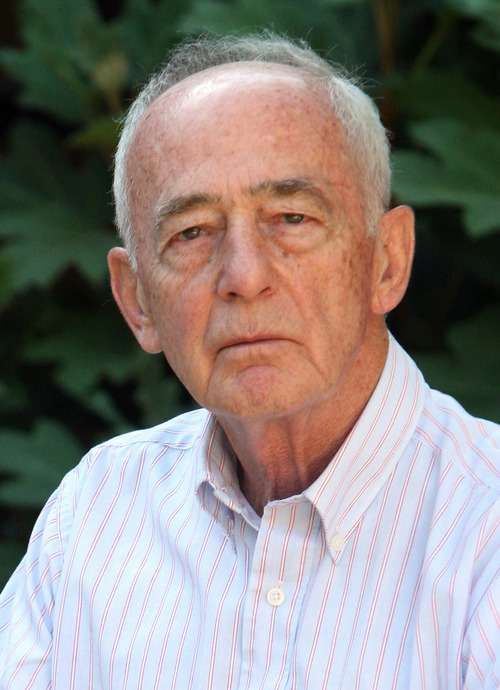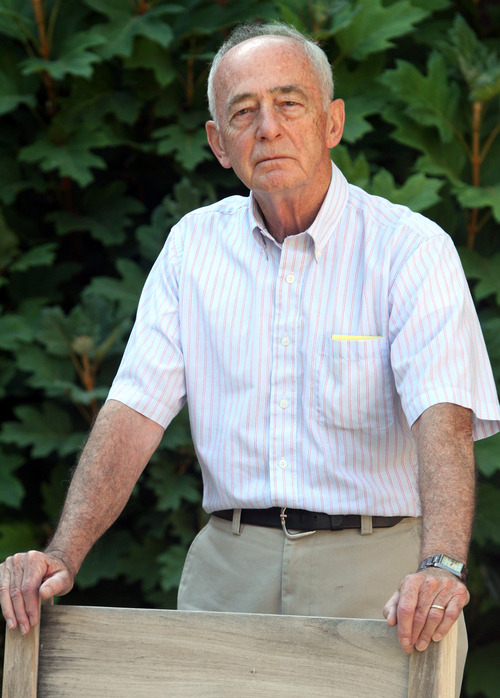This is an archived article that was published on sltrib.com in 2013, and information in the article may be outdated. It is provided only for personal research purposes and may not be reprinted.
As he neared retirement, Art Sutherland began to have more free time and sought a way to "give back" to society. The mild-mannered engineer had no idea that he'd get to "raise hell" at the same time.
On Aug. 24, Sutherland will receive the Joe Duke-Rosati "Hellraiser" award during this year's annual poverty summit, hosted by the Utah Poverty Partnership. Sutherland's tireless advocacy work on behalf of low-income Utahns earned him that recognition.
At 76, Sutherland has been fully retired for two years. But his volunteer efforts with the Coalition of Religious Communities (CORC), a social justice advocacy organization, commenced in 2005 and led him to Utah's Capitol Hill.
"I don't feel like a hellraiser," said Sutherland, who graduated from the Massachusetts Institute of Technology with a doctorate in aeronautics and astronautics in 1966.
"People ask me if I enjoy it," Sutherland said of his legislative watchdogging. "I say no — I just get a perverse pleasure out of tweaking the tail of the dragon. And sometimes we get something done."
Sutherland is particularly proud of the role he played in getting lawmakers to reduce the sales tax on food from 4.75 percent to 1.75 percent over the 2006 and 2007 legislative sessions.
"We're happy with holding the line on sales tax — we just have to defend it every year," Sutherland said.
His current battle centers on "chipping away at the payday lenders," Sutherland said of the high-interest, short-term loan industry that can snare low-income clients in a cycle of debt they can't afford.
"He's my right-hand man," CORC Director Linda Hilton said of Sutherland who has chaired the group's steering committee over the past five years.
"We go to a lot of legislative hearings where all sorts of facts and numbers are thrown around," Hilton said. "So we go back and say where did that come from? Art goes to work, does his numbers, and says 'That isn't even close to right.' "
So what does it mean to raise hell on the Hill?
"He's willing to speak up and speak out," Hilton said, "and hold the Legislature and government entities accountable for what they say and do."
Joe Duke-Rosati honed that habit.
At 50, Duke-Rosati died from brain cancer. He had worked for the Salt Lake Community Action Program since 1977, and served as that agency's deputy director at the time of his death in 1998.
"Joe was a legendary advocate," said Glenn Bailey, executive director of the nonprofit Crossroads Urban Center. "He was just the kind of guy who could talk to anybody and he wasn't afraid of taking a strong position."
Utah Issues — a now defunct public-policy coalition that advocated on behalf of the state's underserved — first launched the Hellraiser award and bestowed it on Duke-Rosati before his death, renaming it in his honor.
The award is given to those who "speak truth to power about issues that are relevant to quality of life for low-income people — and can do it consistently and effectively," Bailey said. "Art certainly fits that bill."
Twitter: @catmck





